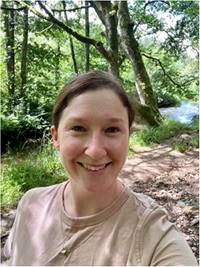Event type:
Virtual event
Organised by:
Geological Society Events, Home Counties North Regional Group
Event status:
EVENT CLOSED
Date, time and location
This virtual lecture will take place on Zoom on Wednesday 24 April 2024. The Zoom meeting will open at 6.45pm, for a 7pm start.
Event details
Eimear Deady led the team that researched and produced the 2023 British Geological Survey (BGS) report identifying the potential for critical raw materials (CRMs), such as lithium and graphite, in areas from the Highlands to South-west England. The report maps areas of the UK where there is the geological potential for CRMs or mines that are economically important and that are at the greatest risk of supply chain disruption to occur.
This national-scale assessment of geological potential for CRMs in the UK represents the first steps in the UK Government’s critical minerals strategy. The strategy aims to make the country resilient to disruption in critical minerals supply chains by accelerating the growth of domestic capability. The UK has 18 metals and minerals on its CRM list, with another six minerals classed as of elevated criticality. These are mostly obtained from mining and refining operations in other countries, although tungsten has been mined in the UK in recent years.
The lecture will cover some of the background to BGS’s commission to undertake the study and their methodology using a minerals systems approach, which relies upon the concept that minerals of a certain type are formed by a combination of particular geological processes. The team identified the geological processes necessary to form CRM deposits and mapped these criteria against the UK’s available data sets, which include maps of geology, soils and geochemistry, and mineral occurrences.
Eimear will describe how BGS identified large parts of the country as prospective for CRMs and the eight key areas identified as particularly worthy of further research. The identification of these areas focused on the geological evidence, and did not consider potential constraints to the development of these resources or the established planning processes necessary for such developments. Further research is also needed into establishing their commercial viability.
Speaker

Eimear Deady BSc MSc, PhD, Mineral Resource Geologist in the Minerals and Waste team at British Geological Survey, Edinburgh
Eimear has worked as a mineral resource geologist for the British Geological Survey (BGS) since 2013 on a number of projects. She has also recently completed a part-time PhD entitled 'An enhanced understanding of the thermal and fluid inclusion history of a Variscan metallogenic province from critical metal investigations: The antimony and tungsten-bismuth deposit of South-west England'. This work is undertaken as part of the Critical Metals Alliance with the Camborne School of Mines, with the aim of understanding critical metal mineralisation in the south-west region of the UK.
After graduating in Geology from Edinburgh University in 2010, and prior to joining BGS, Eimear gained first-hand fieldwork, mapping and sampling experience as an exploration geologist with First Quantum Minerals, Mkango Minerals and Anglo-American in Mauritania, Malawi and Peru and obtained her MSc in Mining Geology at Camborne School of Mines.
Booking
This event is free of charge to all members of the Geological Society Home Counties North Regional Group. Places are available on a first-come-first-served basis, and priority will be given to Fellows and Student Fellows of the Geological Society who are members of the Home Counties North Regional Group.
To book your place, please email [email protected] quoting your membership number.